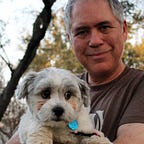The Night the Future Burned Down
Shortly after midnight on Saturday, February 3, 1973, a fire broke out in the kitchen of a modest rental home at 202 Park Avenue in Williston Park, a small incorporated village in Nassau County, Long Island. It spread throughout the ground floor in short order, and despite heroic efforts of volunteer firefighters and neighbors, three children in the Machado family died: two sisters, Maria Fiumena,16; Maria Nazara, 11; and their five-year-old brother, Joseph.
Their 15-year-old brother, Julio Machado, had gone with his father Antonio to pick up his mother, also named Maria, after her work shift ended late Friday night. They returned to find the conflagration in progress, arriving at almost the same time as the firefighters, at least three of whom were the Machados’ neighbors, Robert Kerr, Thomas Manning, and Philip O’Donnell.
Trying to rescue his siblings, Julio entered the house by a rear window, cutting his hand in the process, but was soon overcome by smoke inhalation and had to be carried out of the house by Robert Kerr’s 16-year-old son Daniel.
According to one newspaper report, O’Donnell and Robert Kerr found the two girls unconscious on the floor of their bedrooms and carried them out, then went back for Joseph, who was in a basement bedroom.
The three children were taken to Nassau Hospital in Mineola, where the two girls were pronounced dead shortly afterwards. Despite Robert Kerr reviving Joseph by mouth-to-mouth resuscitation at the scene, the little boy died at the hospital a few hours later.
A family of six had suddenly become three, and Julio had become the family’s only surviving child.
Lately, some 49 years after the event, I’ve been kind of obsessed with the sad tale. I don’t quite know why. I attended Shelter Rock Junior High with Julio Machado, but didn’t know him well; in fact, my only real memory of interacting with Julio was that we had an argument of some kind and were angry at each other. What we’d been arguing about, I have no idea. The only other Machado-related memory I have was from the time after the fire, when word was going around my school that donations were being sought for what was being called the Machado Fund, to provide some charitable funds to the family for new housing and furniture. The parents were immigrants from Portugal, and didn’t speak much English; Antonio worked as a gardener. Given what happened, I’m sure I felt some guilt at Julio and I having fought.
Later that Saturday the burned-out shell of the Machado home had already become a tourist attraction of sorts, with neighborhood people and gawkers forming “a grim, hushed parade” past the stucco walls, as Newsday reported.
“At Pauline Weissman’s stationery store on Willis Avenue, the talk was of little else,” the story read. “‘A terrible thing…Did you know the people?…So much tragedy in this neighborhood.’”
“ ‘Nice people. They kept to themselves,’” said Robert Kerr. “They’re Portuguese and they don’t speak much English, so no one in the neighborhood knew them well.”
The county fire inspector told a Newsday reporter that the fire had started in the kitchen; although the cause was still TBD, he’d found that the gas stove was on and there was food in the oven. Robert Kerr was quoted as having shouted to a neighbor, “See what happens when you don’t clean your oven?”
In March, a little over a month after the fire, the two women who spearheaded the Machado Fund, Pauline Weissman, she of the stationery store, and Stella Kerr handed Antonio Machado a check for $7,650 (equivalent to nearly $50,000 today) in a somber, nearly surreal ceremony at a neighborhood bank.
“When Maria Machado, the 44-year-old mother, arrived,” as a story in Newsday headlined “A Gift Without Joy” read, “she broke down and wept. Her sister-in-law stood grimly beside her chair as Mrs. Machado cried softly into a handkerchief, while her 45-year-old husband, Antonio, and their 15-year-old son, Julio, posed somberly with the check for photographers at the other end of the room.”
All these years later, the phrase The Machado Fund has remained stuck in my head. I barely knew Julio; it wasn’t my tragedy. And yet.
Julio would be about 64 now. If they had lived, his sisters would be about 66 and 60; his kid brother, 54.
I’ve decided against tracking Julio down. Who knows what he’s had to overcome since that time? Why would I want to dredge up those old, bad, traumatic memories? I think that the least I could do is leave him alone.
But if I did ask Julio a few things, they would include these questions:
What did it feel like to suddenly go from being one of four kids in your family to the only living child?
Why was the oven on at midnight? Was the family cooking a meal for the mother on her return home? Was this a usual thing?
Why did your parents leave Portugal in the first place?
How did your parents handle the guilt?
Did you feel survivor’s guilt? Do you still, sometimes, feel it?
And finally, a question for Mrs. Kerr and Mrs. Weissman (if they were, in the admittedly unlikely event, still alive): Why the hell did you think it would be a good idea to have a check-gifting dog-and-pony-show ceremony in a bank, and invite the press, rather than just present it quietly to the Machados in private, as they would almost certainly have preferred?
I’m sure the women meant well, but really…what the hell.
I hope Julio is living a happy life now. I wish him and his surviving family nothing but the best.
